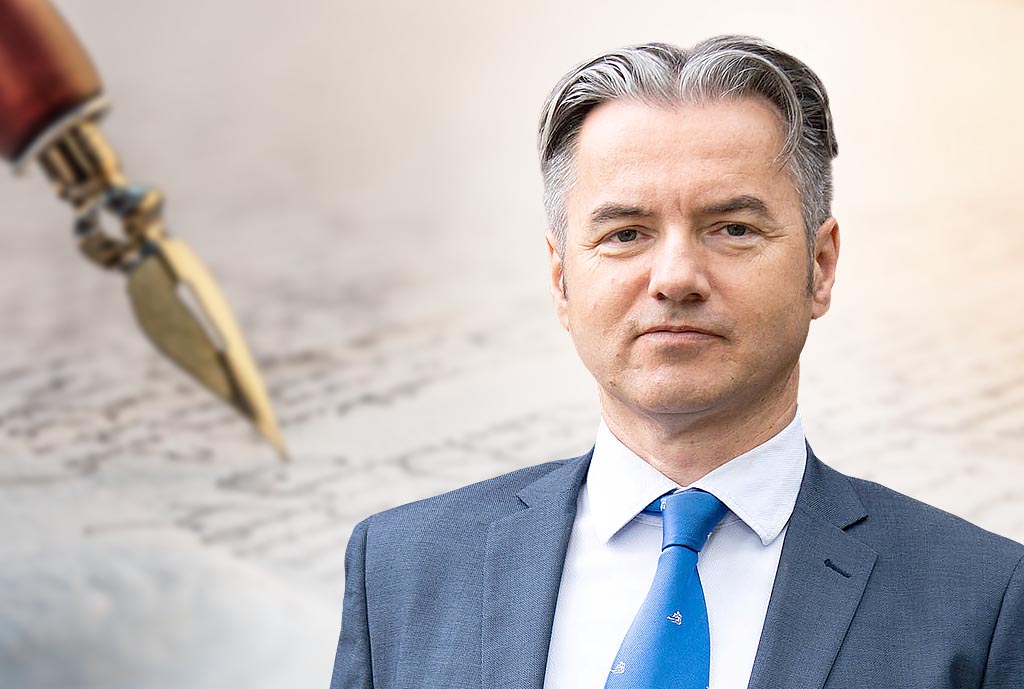By: Dr Metod Berlec
If we thought after the European elections how significantly the politics of the European Union would change, we were quite disappointed last week, although the composition of the European Parliament (EP) is now more balanced. Essentially, in favour of the centre-right or right-wing, as we note in the following pages of our magazine.
It is true that the European parliamentarians at the EP’s inaugural session last Tuesday re-elected Roberta Metsola (EPP/ELS) as the president of the EP, but two days later they re-supported Ursula von der Leyen for president of the European Commission (EC). Although the latter also comes from the centre-right European People’s Party (EPP), she led the EC in the outgoing term under significant influence from leftist policies: from the so-called green transition, inadequate migration policy, implementing progressive (left) policies, double standards regarding the rule of law, to confronting states where notably right-wing governments were in power. Therefore, it is not surprising that before the vote, the European People’s Party (EPP), socialists and democrats (S&D), liberals (Renew), and Greens publicly supported her.
Before the vote, von der Leyen grandly presented her plans and vision for the next five-year term. She committed to things that are agreeable (establishing a “true defence European Union”), but also to some that suggest she will continue on the same path. She emphasised strengthening the competitiveness of the European economy as a top priority and announced the preparation of a clean industry agreement within the first hundred days of the new mandate. In the directions of her programme, she also highlighted effective border security, announced a tripling of staff at the European Border and Coast Guard Agency (Frontex), and doubling of staff at the European Union Agency for Law Enforcement Cooperation (Europol). Among the key priorities for the next mandate, she also mentioned social justice, but the most important one was the strengthening of European democracy. This raises questions about what she means by this, as she seems to have more sympathy for left-wing policies than right-wing, patriotic ones, which she labels as extreme. Von der Leyen now faces forming her commissioner team, aiming for it to be “gender-balanced again”. In the coming weeks, she will call on the leaders of the member states to provide the names of candidates for the EC positions. Mid-August, she will start talks with the commissioner candidates, after which she will assign them their areas of responsibility. The hearings and confirmation of the candidates by the relevant EP committees, which can reject one or more candidates, are expected to take place in October or November. The new EC could start its mandate at the end of the year, after EP approval.
This situation was also commented on by SDS president Janez Janša during a meeting of the SDS committees in Bovec on Saturday. He expressed dissatisfaction with the work of Golob’s government but satisfaction with the results of the European elections, as SDS won “more mandates than the entire ruling coalition combined”. He emphasised that this result is “more important for Slovenia than for the balance of power in Europe”. “We elected four MEPs out of a total of 720, which is just a drop in the ocean. If anyone expected that our victory in Slovenia would change the whole of Europe, they were wrong,” said the SDS leader, adding that the centre-right in Slovenia achieved the best result in Europe. If similar results had been achieved in most of the largest European countries, von der Leyen would not have been re-elected. Although some good measures were adopted under her leadership in the previous EC term, Europe still went in the wrong direction. Therefore, the party’s MEPs did not support von der Leyen. According to Janša, the next crucial step will be the parliamentary elections for both Slovenia and Europe. “A different government in Slovenia after the next parliamentary elections could have a much more significant impact on the situation in Europe than the EP elections.”
Of course, Janša was referring to the European Council and the Council of the European Union, the bodies where key EU decisions are made, particularly the European Council, which is the highest political body of the EU, consisting of the heads of state or government of the EU member states and the president of the EC. And if Slovenia were to get a centre-right government, it could significantly influence the political direction of the EC and thus the EU. This is especially important now, as we are living in a world on the brink of World War III, that we are represented in the highest EU bodies by competent people and not amateurs.

